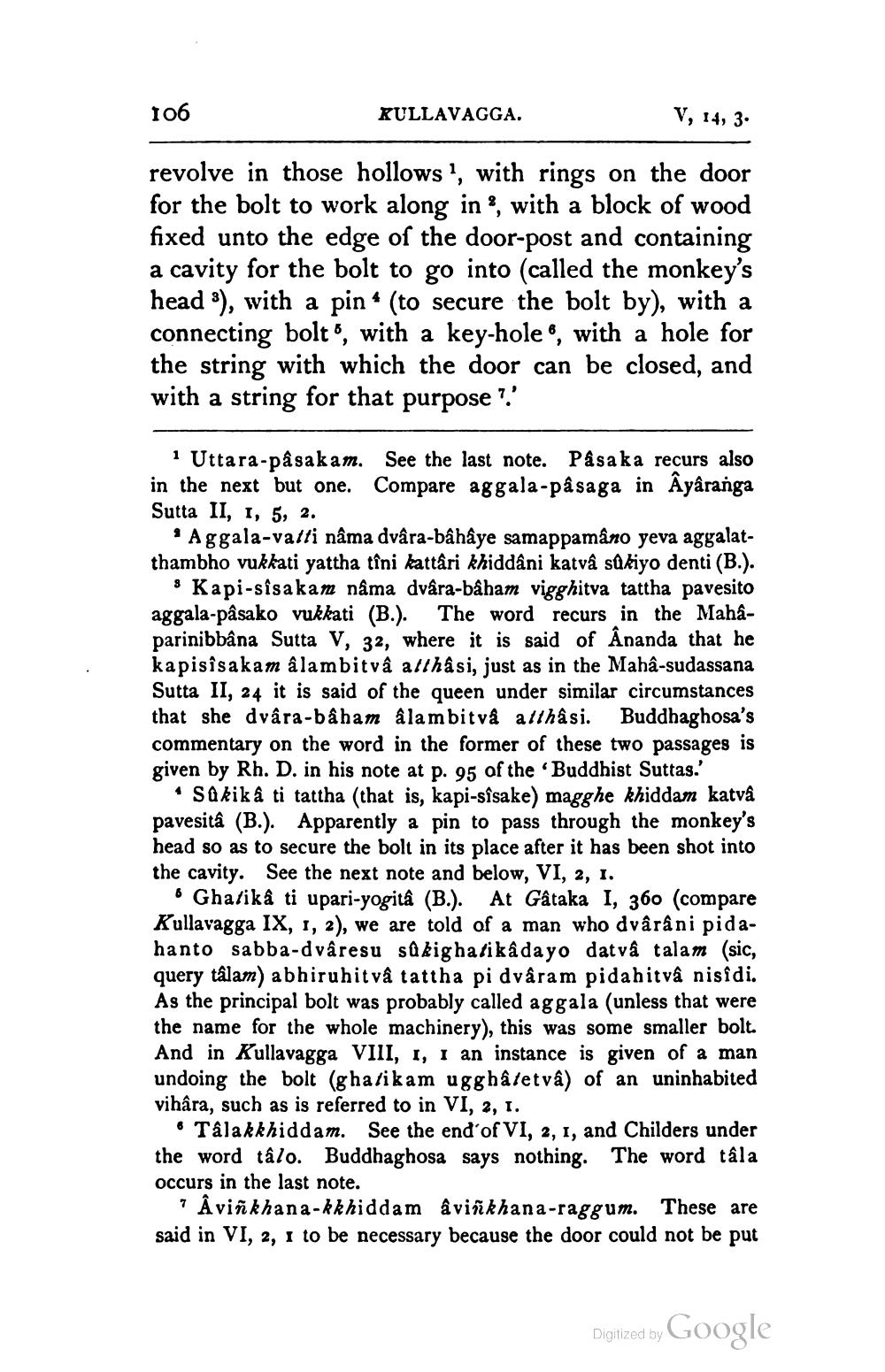________________
106
KULLAVAGGA.
V, 14, 3.
revolve in those hollows !, with rings on the door for the bolt to work along in?, with a block of wood fixed unto the edge of the door-post and containing a cavity for the bolt to go into (called the monkey's head 3), with a pin* (to secure the bolt by), with a connecting bolt", with a key-hole, with a hole for the string with which the door can be closed, and with a string for that purpose ?'
1 Uttara-pâsakam. See the last note. Pasaka recurs also in the next but one. Compare aggala-påsaga in âyâranga Sutta II, 1, 5, 2.
Aggala-vatti nama dvâra-bâhâye samappamâno yeva aggalatthambho vukkati yattha tîni kattari khiddani katvà sâkiyo denti (B.).
* Kapi-sîsakan nama dvâra-båham vigghitva tattha pavesito aggala-pasako vukkati (B.). The word recurs in the Mahaparinibbâna Sutta V, 32, where it is said of Ananda that he kapisisakam âlambitva allhasi, just as in the Mahâ-sudassana Sutta II, 24 it is said of the queen under similar circumstances that she dvara-bahan alam bitvå althâsi. Buddhaghosa's commentary on the word in the former of these two passages is given by Rh. D. in his note at p. 95 of the Buddhist Suttas.'
• Sakik a ti tattha (that is, kapi-sisake) magghe khiddam katvå pavesitá (B.). Apparently a pin to pass through the monkey's head so as to secure the bolt in its place after it has been shot into the cavity. See the next note and below, VI, 2, 1.
• Ghalikå ti upari-yogitá (B.). At Gâtaka I, 360 (compare Kullavagga IX, 1, 2), we are told of a man who dvârâni pidahanto sabba-d vâresu sū kighatika dayo datva talam (sic, query tâlam) abhiruhit vâ tattha pi dvaram pidahitvâ nisidi. As the principal bolt was probably called aggala (unless that were the name for the whole machinery), this was some smaller bolt. And in Kullavagga VIII, I, I an instance is given of a man undoing the bolt (ghalikam ugghâtetvâ) of an uninhabited vihâra, such as is referred to in VI, 2, 1.
• Talakkhiddam. See the end of VI, 2, 1, and Childers under the word tâlo. Buddhaghosa says nothing. The word tâla occurs in the last note.
Aviñkhana-kkhiddam â vinkhana-raggum. These are said in VI, 2, 1 to be necessary because the door could not be put
Digitized by
Digitized by Google




